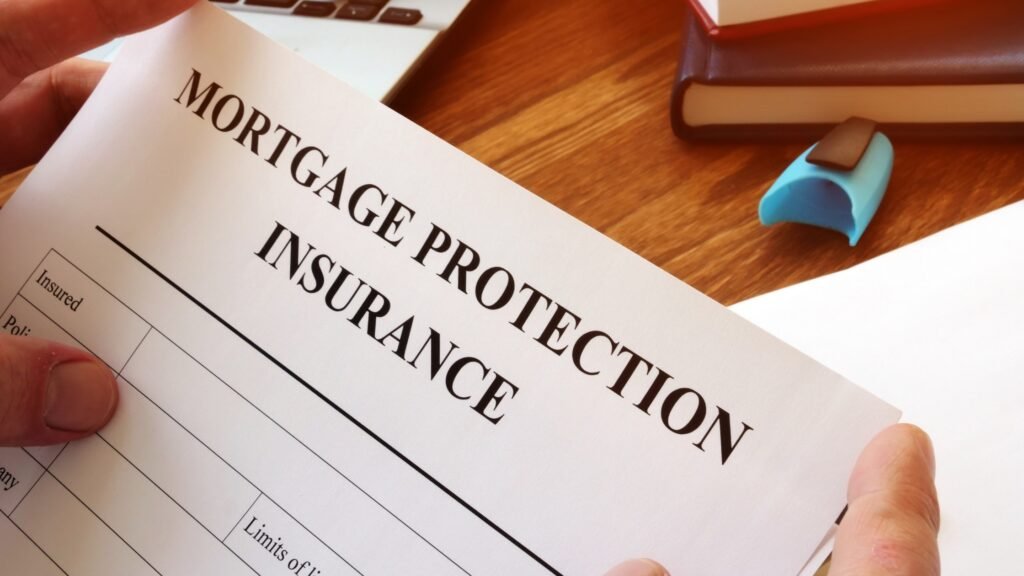Understanding the Significance of Homeowners Insurance
Homeownership represents one of life’s most significant milestones, signifying stability, security, and accomplishment. However, the journey to owning a home is not without its complexities and challenges. Securing a mortgage to finance a home purchase is a process that involves various stakeholders, intricate legalities, and financial commitments. Amidst this complexity, homeowners insurance emerges as a critical component, offering protection, peace of mind, and ensuring the sustainability of your investment.

Why Homeowners Insurance Matters
Homeowners insurance serves as a safeguard against unforeseen circumstances that could potentially jeopardize your investment and financial well-being. While mortgage lenders require homeowners insurance as a prerequisite for loan approval, its importance transcends mere compliance. This insurance provides coverage for a range of risks, including natural disasters, theft, vandalism, and liability claims, shielding homeowners from significant financial losses.
Protection Against Natural Disasters
Natural disasters such as hurricanes, earthquakes, floods, and wildfires can wreak havoc on homes, causing extensive damage and destruction. Homeowners insurance offers protection against these perils, enabling individuals to rebuild and recover in the aftermath of such events. By mitigating financial losses, this insurance ensures that homeowners can resume their lives and restore their properties without bearing the full brunt of the expenses.
Safeguarding Against Theft and Vandalism
Property crimes, including theft and vandalism, pose significant threats to homeowners, compromising their sense of security and well-being. Homeowners insurance provides coverage for stolen belongings and damages resulting from acts of vandalism, offering reimbursement for losses incurred. This protection not only alleviates financial burdens but also fosters a sense of security and confidence in one’s home environment.
Liability Coverage for Peace of Mind
In addition to safeguarding against property-related risks, homeowners insurance also includes liability coverage, protecting homeowners from legal liabilities arising from accidents and injuries that occur on their property. Whether it’s a slip-and-fall incident or a dog bite, liability coverage ensures that homeowners are not held financially responsible for unexpected mishaps, thereby safeguarding their assets and financial stability.
The Role of Homeowners Insurance in Mortgages
Lender Requirements and Compliance
For individuals seeking to finance a home purchase through a mortgage, securing homeowners insurance is not optional but mandatory. Mortgage lenders require borrowers to obtain insurance coverage to protect their investment and mitigate their own risks. Failure to comply with this requirement can result in loan rejection or delays in the approval process, underscoring the non-negotiable nature of homeowners insurance in mortgage transactions.
Asset Protection and Risk Mitigation
From the lender’s perspective, homeowners insurance serves as a safeguard against potential losses resulting from property damage or destruction. By ensuring that the mortgaged property is adequately insured, lenders minimize their exposure to financial risks, thereby safeguarding their interests and investments. In essence, homeowners insurance functions as a risk mitigation strategy that protects both homeowners and lenders from unforeseen contingencies.
Enhancing Borrower Confidence and Financial Stability
Beyond mere compliance with lender requirements, homeowners insurance enhances borrower confidence and financial stability. Knowing that their investment is protected against various risks instills a sense of security and peace of mind among homeowners, empowering them to make informed decisions and pursue their homeownership goals with confidence. Moreover, by mitigating financial risks, homeowners insurance contributes to the long-term sustainability and viability of mortgage loans, benefiting both borrowers and lenders alike

Securing your home involves more than just locking your doors; it also means protecting your investment. One critical aspect of this protection is having adequate homeowners insurance, which plays a pivotal role in mortgages. Here’s how homeowners insurance factors into securing your home and its significance in mortgage agreements:
- Requirement by Lenders: Most mortgage lenders require homeowners to have insurance as a condition of the loan. This is because the property serves as collateral for the loan, and the lender wants to ensure that their investment is protected against damage or loss.
- Property Protection: Homeowners insurance provides financial protection against various risks, including fire, theft, vandalism, and natural disasters. In the event of such incidents, insurance helps cover the cost of repairs or rebuilding, allowing homeowners to restore their property without facing significant financial strain.
- Liability Coverage: Homeowners insurance also typically includes liability coverage, which protects against lawsuits for bodily injury or property damage caused by the homeowner or their family members. This coverage can help cover legal expenses and damages awarded to the injured party, reducing the homeowner’s financial liability.
- Mortgage Requirements: Lenders specify certain minimum coverage requirements for homeowners insurance, ensuring that the policy adequately protects the property and the lender’s interests. These requirements typically include coverage for the structure of the home, personal belongings, and liability.
- Escrow Payments: In many cases, homeowners include insurance premiums in their monthly mortgage payments through an escrow account. This arrangement helps ensure that insurance premiums are paid on time, reducing the risk of coverage lapses and ensuring continuous protection for the property.
- Policy Renewal: Homeowners are responsible for maintaining their insurance coverage throughout the life of the mortgage. Lenders may periodically verify that the insurance policy is active and meets their requirements. Failure to maintain adequate coverage could result in penalties or even foreclosure.
- Appraisal and Underwriting: When applying for a mortgage, lenders may require proof of homeowners insurance as part of the underwriting process. Insurance information helps lenders assess the property’s value and risk, influencing the terms and conditions of the loan
Frequently asked questions (FAQs)
Certainly! Here’s a set of frequently asked questions (FAQs) regarding homeowners and its role in mortgages:
1. Why is homeowners insurance necessary for getting a mortgage? Homeowners is typically required by mortgage lenders to protect their financial interest in the property. It ensures that the property, which serves as collateral for the loan, is adequately protected against damage or loss.
2. What does homeowners insurance cover? Homeowners typically covers damage to the structure of the home, personal belongings, and liability for injuries or property damage. Specific coverage can vary depending on the policy and insurer.
3. How much homeowners insurance coverage do I need? The amount of coverage you need depends on factors such as the value of your home, its contents, and your liability risks. Your mortgage lender may specify minimum coverage requirements, but it’s essential to evaluate your individual needs to ensure adequate protection.
4. Can I choose my homeowners insurance provider? Yes, you generally have the freedom to choose your homeowners provider. However, your lender may have a list of approved insurers or specific requirements regarding the coverage and deductible.
5. What happens if I don’t have homeowners insurance? Failure to maintain homeowners insurance as required by your mortgage agreement can result in penalties or even foreclosure. Without insurance, you would be financially responsible for any damage to your home or liability claims.
6. How are homeowners insurance premiums determined? Homeowners insurance premiums are influenced by factors such as the value of the home, its location, the deductible amount, the coverage limits, and the homeowner’s claims history. Insurers also consider factors such as the home’s age, construction materials, and proximity to fire hydrants or flood zones.
7. Can I change my homeowners insurance policy during the term of my mortgage? Yes, you can change your homeowners policy if needed. However, any changes should meet the requirements set forth by your lender, and you should ensure that continuous coverage is maintained to avoid any penalties or issues with your mortgage.
8. What should I do if I experience a loss covered by my homeowners insurance? If you experience a covered loss, such as damage from a fire or theft, you should contact your insurance company as soon as possible to file a claim. They will guide you through the claims process and help you get the necessary repairs or replacements.
9. How often should I review my homeowners insurance policy? It’s advisable to review your homeowners insurance policy annually or whenever significant changes occur, such as home renovations or acquisitions of high-value items. Regular reviews ensure that your coverage remains adequate to protect your home and assets.
10. Can I cancel my homeowners insurance once my mortgage is paid off? While you technically can cancel your homeowners once your mortgage is paid off, it’s generally not advisable. Homeowners provides valuable protection against unforeseen events, and maintaining coverage can help safeguard your investment and financial security.


